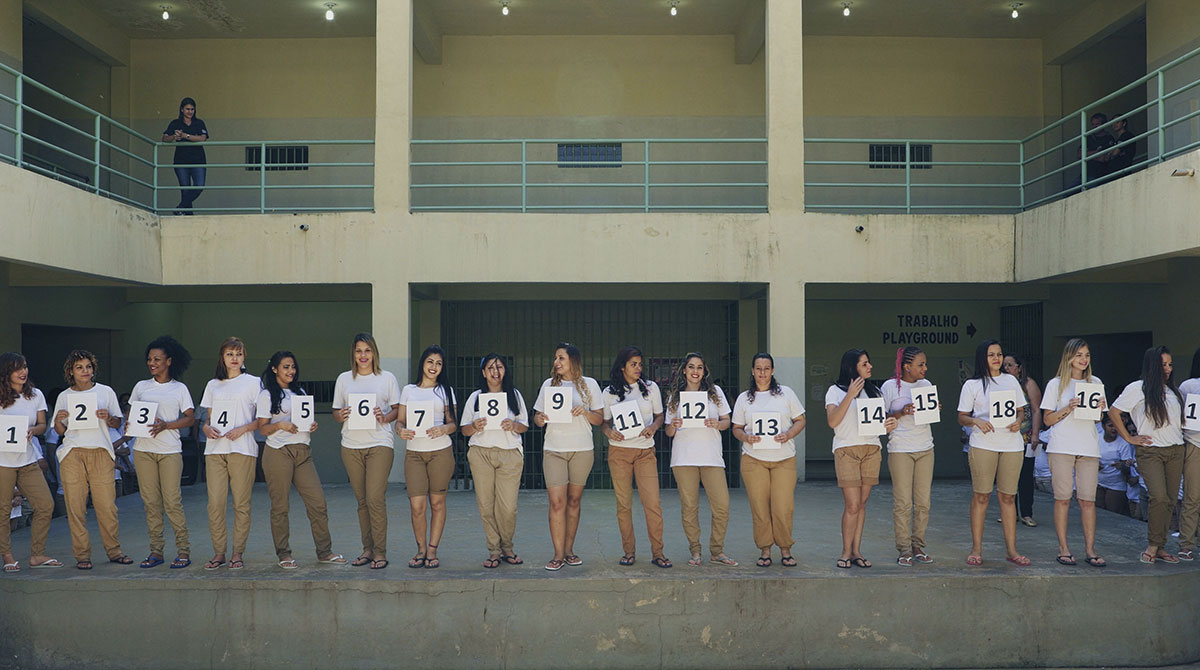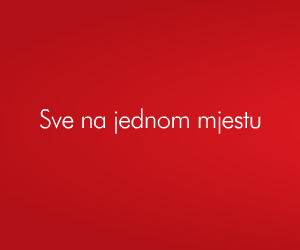
08/10/2024
Srđan Šarenac: I filmed in prison with 1500 women and they all wanted to be in my film
Unusual stories draw attention of the director Srđan Šarenac from BiH. After he was awarded at the Mediterranean Film Festival in 2011 for the documentary "Village Without Women", he is again in the competition at the festival with another not so common topic. We were interested in what motivated him to decide to make a film about the female prisoners on the other side of the world. His film “Prison Beauty Contest” can be understood as some kind of a revolt against the prison uniform.
How did you come up with this topic?
My ex-girlfriend showed me an article in which it was written that there was a beauty pageant organised in a Brazilian prison. I was absolutely thrilled with that news, and from there my journey begins. I immediately saw a positive story and decided to make a film. My goal was to show that it is possible to improve the life of the prisoners and that they are not just a prison number but also human beings with feelings. I thought that if I made a film, I could also show in Europe that it is possible to organise a contest for Miss Prison, and that European prisons, as well as prisons in our country, could be guided by this idea and do it.
You are known as a director who chooses somewhat unusual topics. We remember the film “Village without Women”, which was also awarded at the festival in Široki Brijeg. How do you choose topics?
Both "Village without Women" and "Prison Beauty Contest" are titles that, when people read them, they cannot believe that such a thing exist. I am attracted to these absurd stories and things that are less likely to exist in our world. I also have to choose a topic that can keep me going for 5-10 years because that's how long it takes until the documentary is made.
You worked on this film for 15 years, how did the filming process go and what were the things that made it difficult?
The filming itself lasted much shorter, but it took me 15 years to get the film finished. I am fortunate that I don't give up easily on the topics I choose for the film. It took us quite a long time to find a prison that would allow us to shoot the film. Brazil is a country with 215 million people, so we spent over three years just on looking for a prison. The financing the film was also time-consuming. In the beginning, I asked for support for the development of the script, then for the development of the project, and only then for the shooting itself, that is, the production of the film. Each of these processes takes time, and quite a few times funds rejected me, because in fact film funds usually support 20 percent of the projects submitted, those 80 percent are rejected. But I was very persistent, so I succeeded to make the film.
How did you decide the on the three main characters – Joyce, Angel and Sueli? What is it that makes them special and why are their stories important?
In the process of project development we were filming the casting, that is, we were looking for the protagonists for the film. And what happened was that all the prisoners, 1.500 of them wanted to be in the film. Then the director of the prison helped us to choose 30 prisoners. The three main characters – Joyce, Angel and Sueli stood out among these 30. The three of them repented, they realised that they should not have committed crimes that would put them in prison and separate them from their families. Each of them is competing in a different category, Joyce for “Miss Spring”, Sueli for “Miss Plus Size” and Angel in “Mister” category.
I assume that the filming, given the circumstances, was quite uncertain and that many unplanned things happened. Can you tell us about some of the difficulties that you encountered? And also about some nice experiences that happened.
When we were doing the first casting for the film, which was in 2017. We chose three girls then. The next time we came they were no longer in prison, but they were sent to another prison, which was 1.000 kilometres away, because of the reconstruction of one prison wing. Therefore, we were forced to do a new casting where we chose Joyce, Angel and Sueli. There are a lot of nice experiences. First of all they allowed us to film female prisoners for ten weeks, before, during and after the “Prison Beauty Contest”. They trusted us from the very beginning to the end of the shooting. And in a prison with 1.500 female prisoners.
How much did such a competition really affect their self-confidence?
It took very little for the prisoners to feel like women again. At least for a short time, they got a chance to break free from the prison shackles, even if it was imaginary through such a special event. This was a unique opportunity to take off their prison clothes and wear dresses, what gave them a chance for rehabilitation and feel like they were free. Society often forgets that they deserve a second chance for a better life.
What is in your focus now, the project you are working on?
I am currently working on the project Cinema under Siege. It is a story of the creation of the first Sarajevo film festival during the war. That film should premiere in 2025.


